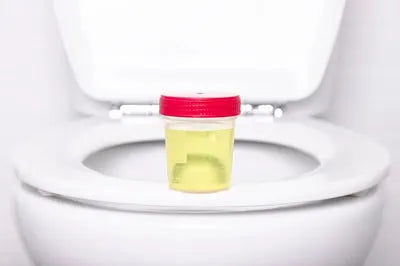Childbirth is a momentous event in the life of a woman. There is a flurry of activity before and after the birth of a baby and new mothers often need more essentials than they pack. After giving birth, women experience postpartum bleeding also known as lochia and urinary incontinence or the involuntary urine leakage. This is why they need comfortable and leak-proof supplies in their hospital bags. It is vital to know what items may be required after delivery in the hospital.
But before that, let us give you a quick overview of the postpartum period so you are prepared for things that are to come your way.
What is postpartum?
The postpartum period, also known as the postnatal period, is the time following childbirth during which a mother's body, as well as her hormones and emotions, gradually return to a non-pregnant state. This period typically lasts for about six weeks, but the exact duration can vary for each woman.
According to PubMed Central’s article "Postpartum period: three distinct but continuous phases”, there are three stages to the postpartum period. In order of occurrence, they are as follows:
-
Acute Period:
It involves the first 6–12 hours right after delivery of baby. This is a time of rapid change with a potential for complications after birth such as postpartum hemorrhage, uterine inversion, amniotic fluid embolism, and eclampsia. Mothers need to be extremely careful during the first few hours right after childbirth.
-
Sub-acute Postpartum Period:
It lasts 2–6 weeks postpartum. During this phase, you go through a lot of emotional and bodily changes. You can generally sense for yourself is something is not right with your body or recovery during this phase.
You might face problems such as perineal (the area between anus and vaginal opening) discomfort, perineal discomfort to peripartum cardiomyopathy (a rare type of heart condition that affects women during late pregnancy or in the months following childbirth), or severe postpartum depression.
-
Delayed Postpartum Period:
This phase can last up to 6 months. Your body finally returns and settles down to its pre-pregnancy state in this phase.
4 Must Have Items That New Moms Need After Childbirth
1. Nursing pads
Nursing pads are a must postpartum essentials help to prevent milk leaks and relieve mothers from discomfort during feeding. It is recommended to buy soft, organic and reusable nursing pads that do not cause itchiness and pain around their tender breasts.
2. Supportive bra
A nursing bra comes handy to support the extra weight of the breasts and sleep in comfortably without being too tight. Women should pack at least three to five of these as sometimes one has to stay in the hospital for longer than expected.
3. Maternity Pads
Maternity pads after delivery or post delivery pads or pregnancy diapers are especially designed absorbent pads to be used by women after childbirth for really heavy bleeding or even slight urine leaks. They have a soft, comfortable top sheet, are extra wide and long to prevent blood from leaking out of the pads, prevent allergies, rashes and infections, provide extra absorbency and come for various needs. For example, maternity pads made by Friends come in two different variants. If you are comfortable wearing panties right after childbirth then you can go for our Sticker Style Maternity Pads. If you are facing extra sensitivity down there, then you can go for our Loop Style Maternity Pads and ditch underwear altogether!
Related Read - How To Choose The Best Maternity Pads?
4. Comfortable panties
Since there is urine leakage and bleeding, women are made to wear mesh underwear with large hospital pads after delivery. Not many women prefer these panties and thick pads, so packing this essential is necessary. New mothers need to wear full coverage pads and ladies diapers to manage their incontinence. Some women prefer to wear disposable underwear while others wear pant-style overnight diapers for adults as these are easier to wear just like an underwear. This relieves them from the worry of pads slipping or not staying in place and it is a more sanitary, non-messy solution. Some of these pull-on adult diapers can be washed and are reusable. It is best to pack a couple of soft and comfortable cotton panties and diapers made for ladies.
It is best to prepare a checklist of items that are most needed and pack them in advance in the maternity bag. After birth, mothers have to tend to the baby’s feeding and diapering needs as well as manage themselves too, so forgetting an important item or not finding something essential in a moment’s notice can make it very difficult for them. A woman’s body undergoes a lot of changes after delivery and it takes time to heal, adjust and control their urine flow and lochia. Urine leakage in women stays for quite some time after pregnancy too, so having the best supplies from earlier can alleviate much of their concerns.
Product Recommendations
Now, there a few commonly asked questions that women might have about the postpartum period. Take a look at a few of these below:
What should I buy for postpartum recovery?
- Stock up on maternity pads for postpartum bleeding (lochia)
- Comfortable and loose-fitting clothing
- Nursing bras and breast pads if you plan to breastfeed
- Stool softeners to ease bowel movements, especially if you had a vaginal delivery
- Pain relief medications recommended by your doctor
- Perineal spray or soothing gel for perineal discomfort
- Healthy, easy-to-prepare snacks and meals
- A comfortable pillow for breastfeeding or supporting your body while resting
Related Read - How Many Maternity Pads Do I Need After Giving Birth?
How long should I rest after giving birth?
For the first few days, focus on resting, bonding with your baby, and basic self-care. Avoid heavy lifting and strenuous activities for at least 6 weeks, especially after a cesarean section or complicated delivery. Listen to your body and plan for a few weeks of limited activity.
What helps postpartum recovery?
Here are a few things that might help:
- Adequate rest and sleep whenever possible
- Accepting help from family and friends for household chores and baby care
- Gentle exercises like postpartum yoga or walking once your doctor approves
- Emotional support from loved ones or support groups
- Seeking professional help if you experience signs of postpartum depression or anxiety
What should I avoid during postpartum?
- Heavy lifting or strenuous exercises until cleared by your doctor
- Sexual intercourse until your doctor gives the green light
- Excessive caffeine and alcohol
- Stressful situations when possible; prioritize self-care and relaxation
What are normal postpartum symptoms?
- Vaginal bleeding (lochia) and perineal (area between anus and the vaginal opening) discomfort
- Contractions as the uterus shrinks back to its normal size
- Breast engorgement and milk production, whether breastfeeding or not
- Mood swings, sometimes called baby blues, due to hormonal changes
- Fatigue, often caused by interrupted sleep
Remember, every woman's postpartum experience is unique, so it's important to consult your healthcare provider for personalized advice and guidance tailored to your specific situation. See you again in the next blog!



















